Updated 25 August
“I would like to be part of an effort to promote unity and peace across the world. I feel that people often see the worst in each other and changing this outlook might help resolve conflicts.”
–Khing Maung Soe, refugee humanitarian
“I want to send messages to my people and to the world through my poems. My poems are the real voice of Rohingya women that need to be heard. They too deserve equality.”
“In contrast to those who suggest that we act as soon as the whistle blows, I suggest that, even before the whistle blows, we ceaselessly try to know the world in which we live — and act. Even if we must act on imperfect knowledge, we must never act as if knowing is no longer relevant.”
-Mahmood Mamdani in Saviors and Survivors
Too many calls for our awareness
There are many humanitarian hot spots around the world at this moment, and any listing risks being incomplete. Protests in Hong Kong, military tension in Kashmir, Syrian civil war, Venezuelan unrest, persistent power struggles in Somalia, Ebola in the Congo, fires in the Amazon and Siberia, melting glaciers in Greenland and the Arctic, to name a few.
The humanitarian crises generated by human conflict have one thing in common: they all involve some form of ‘othering’ which typically manifests itself as racism. At its extreme, racism can lead to genocidal actions by those who wield power. When this happens, our collective humanity is being questioned. How we respond defines us both individually and collectively. All the major Abrahamic religious traditions -at their best- preach that we are all ‘brothers and sisters.’ The question we are faced with is, can -or will- our actions reflect the ‘better angels of our nature’?
Today, August 25, gives us an opportunity to answer this question.
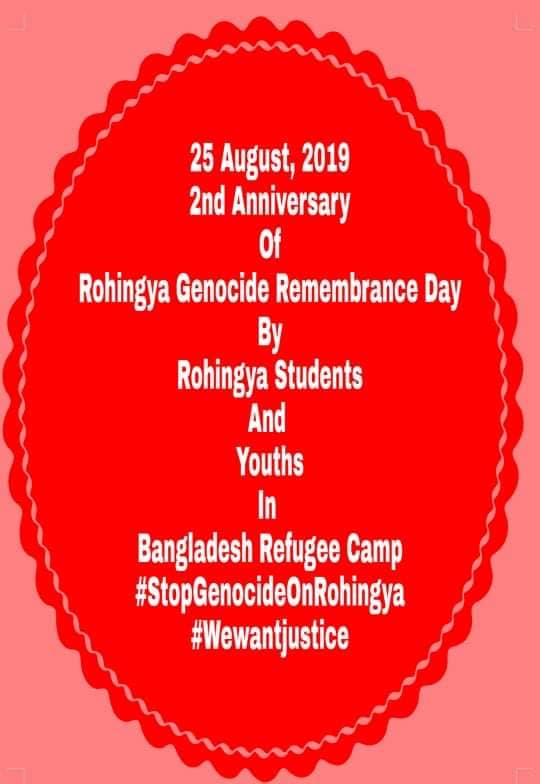 #RohingyaGenocideDay: a day for memories and action
#RohingyaGenocideDay: a day for memories and action
In the spirit of Mamdani’s statement above, let us more thoroughly “…try to know the world in which we live – and act” by learning about the struggle faced by those now living in the world’s largest refugee camp in Cox’s Bazar, Bangladesh. We need to know the history of the events which forced hundreds of thousands Rohingya to flee their homes, the complexities behind their refusal to accept repatriation plans made by the Myanmar government, and what can be done to show solidarity with these women and men. This solidarity must include helping put pressure on the international community to demand accountability from the Myanmar military for the many atrocities, including gang rapes.
As you read this, there are various gatherings in the massive refugee camps in Cox’s Bazar meant to mark this dark day in the lives of so many. Thousands are gathering, speaking, and seeking amplification of their voices, hoping that the world will hear….and respond.
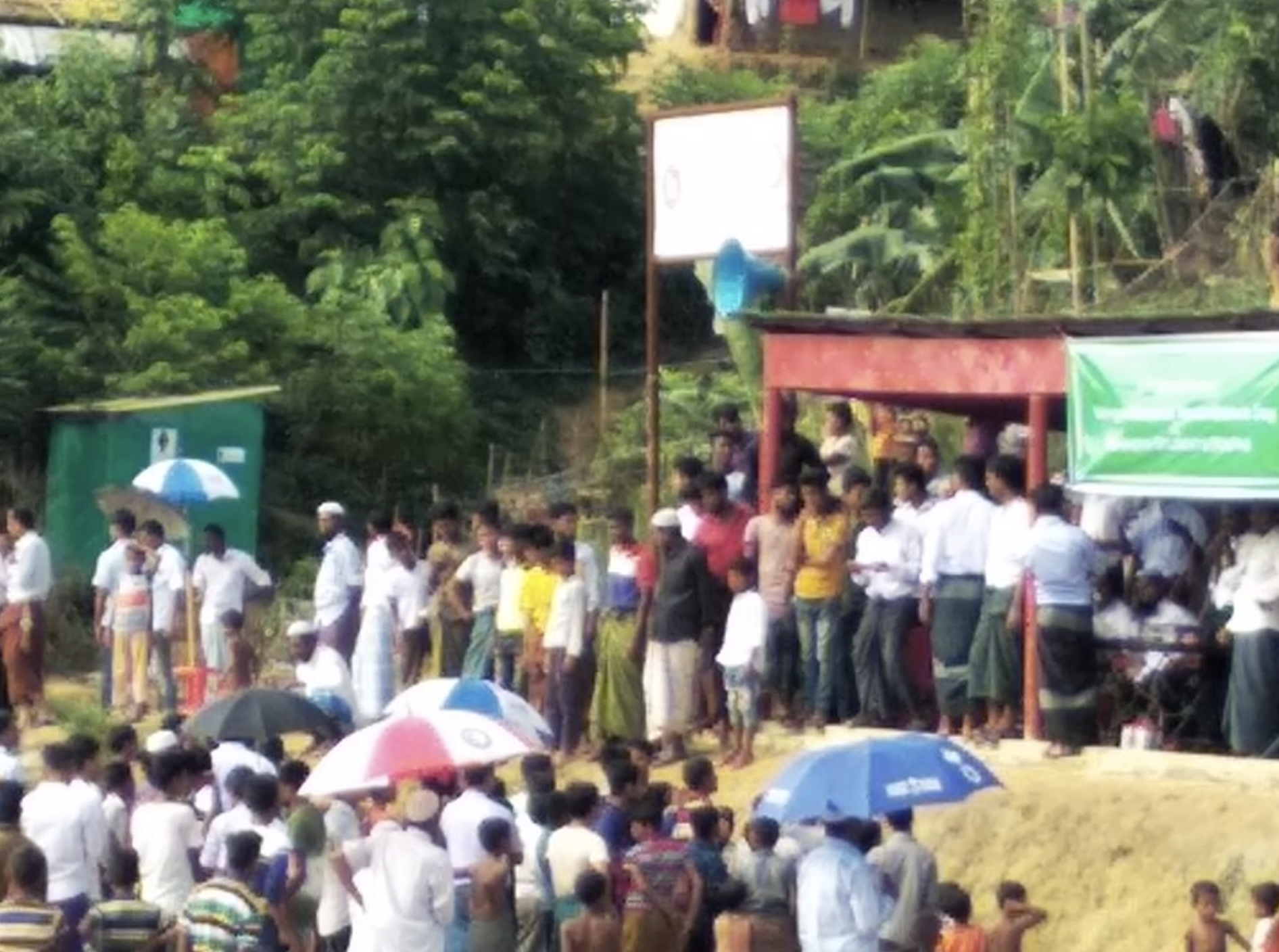
On this second anniversary of the August 25, 2017 genocide against the Rohingya, we need to know as much as possible so that we -especially those in the minority world (‘global North’)- may act mindfully and proactively. Justice groups -both faith based and non-faith based– from around the world are doing their part to shine a light on the plight of the Rohingya. There is a unified voice saying that the Rohingya deserve a seat at the table as any repatriation decisions are made.
To add some context, the genocide against the Rohingya started decades ago. This most recent event is more extreme both in number impacted and intensity, but it is not new.
Staying informed
To be more informed in a grass roots manner, one can find a wealth of information on Facebook. By following pages like Protect the Rohingya, The Art Garden of the Rohingya, and Danish Refugee Council Bangladesh you can stay up to date with links and comments from all over the world. My series of posts featuring ‘refugee humanitarians’ can give a broad overview that uses and amplifies the voices of the Rohingya youth.
There is no lack of detailed, documented, and informative material about the crisis facing the Rohingya. Winner of the 1999 Nobel Peace Prize, Medicines Sans Frontieres (MSF, aka, Doctors Without Borders) is always comprehensive and typically provides objective insight. This recent NY Times article “Massacred at Home, in Misery Abroad, 730,000 Rohingya Are Mired in Hopelessness”) provides deep background and up to date information. Countless news stories from the UN and other sources fill in critical -and many times shocking- details.
The UN agencies are perhaps the best place to stay up to date. Here are some links, all specific to the Rohingya response: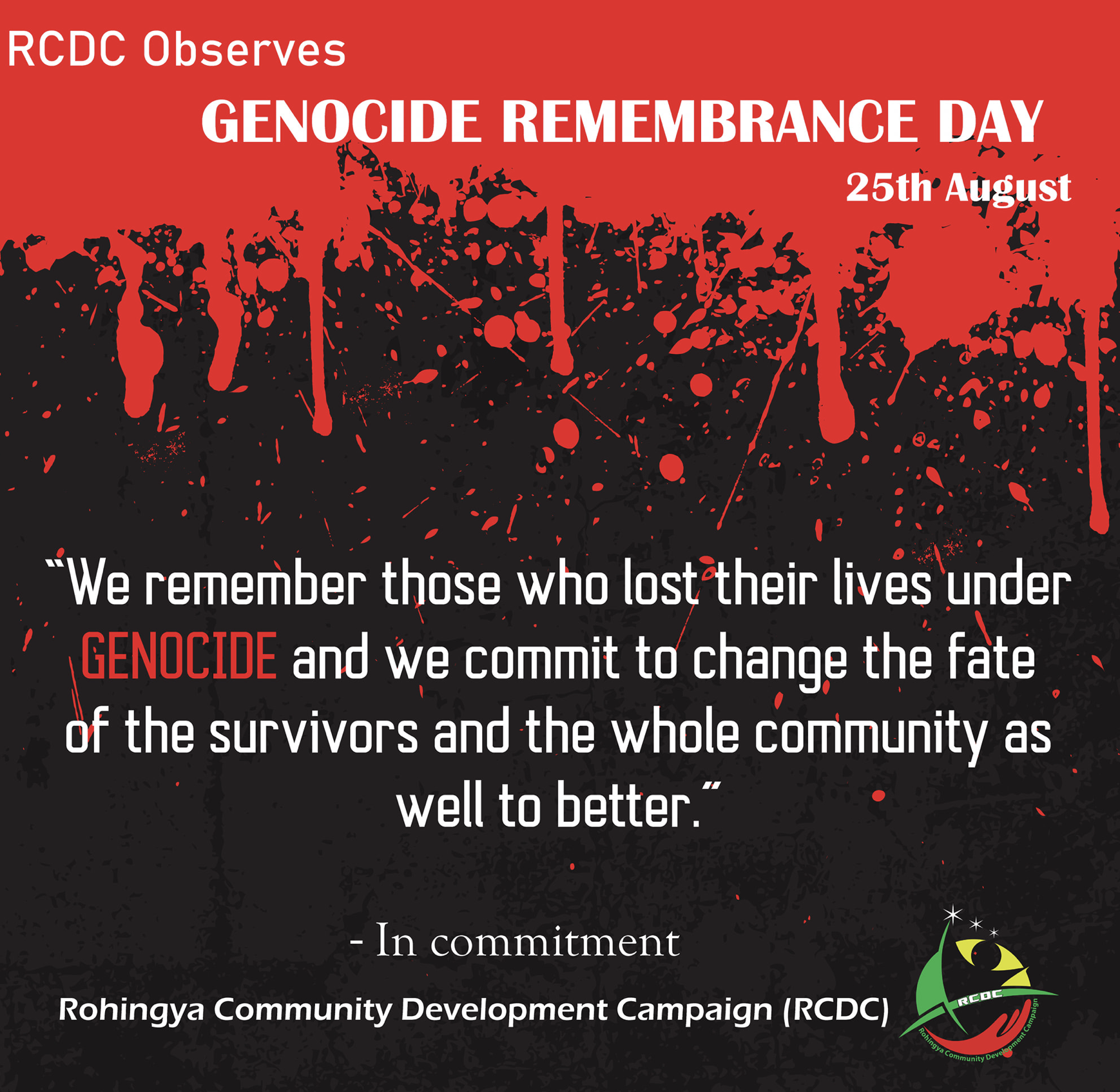
- United Nations Office for Coordinatiuon of Humanitarian Affairs (OCHA)
- UNHCR The UN Refugee Agency
- IOM UN Migration
- World Food Programme (WFP)
- UNICEF
Action points
If you are reading this I must assume you know English and have at least some access to technology. With this knowledge comes responsibility to respond in some way, at least this is my view as a humanist/humanitarian. So, what action points are implied in the above?
At the very least,
- learn more about the situation facing the Rohingya
- inform others both in casual conversation and by using other platforms to which you may have access
- most importantly, act with compassion based on what you have learned
I know from talking with many Rohingya they believe the international community must put greater pressure on the Myanmar (Burmese) government. Making an extra effort to inform those in positions of power (e.g., for those in the USA, your elected representatives and the President).
The US Department of State has issued a statement pushing for action. It says, in part,
“We continue to encourage the Burmese government to implement the Advisory Commission’s recommendations, which offer the best path forward for Burma and all the people of Rakhine State, as well as all those who fled.”
That said, the Trump administration is reported to be considering a $4.3 billon cut to foreign aid, some of which goes to the the UN agencies supporting the Rohingya refugee camps in Bangladesh. Concerned citizens both in the US and elsewhere around the world need to hear the cries for support from the Rohingya and urge politicians to act in a way that reflects the fact that all humans deserve justice and access to pathways to dignity, safety, and hope.
I’ll end this post with a poem written for this day by a young Rohingya refugee humanitarian, Ro HM Hairu.
Genocide Remembrance Day
By Ro BM Hairu
25 August, a red red date
Very traumatic and stricken
On which my parents and siblings’
Blood was poured into a gutter
Where I desperately swam to escape
25 August, a dark dark date
Very unforgettable and remarkable
On which my villagers and
community’s
young and old were burnt into ashes
Where I desperately crawled to escape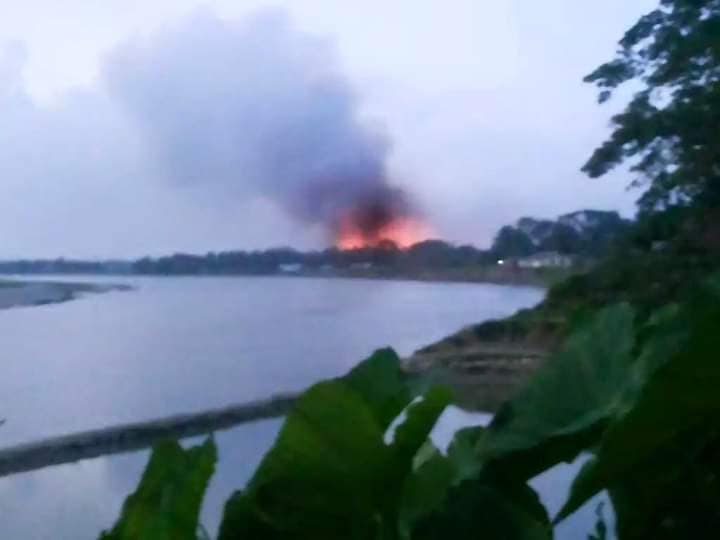
25 August, a smoky bloody date
Very anxious and dangerous
On which my village and home
Were razed to the ground
Where I ghastly faced massacre
I have still wounds from bullets
ON my body got during non-stopping firing
The trauma which I got in motherland
The more I try to heal them away from my mind,
The more I become depressed
How can I forget this day from my life?
#2ndAnniversary
#RohingyaGenocideRemembranceDay
#StopGenocideOnRohingya
#WeWantJastice


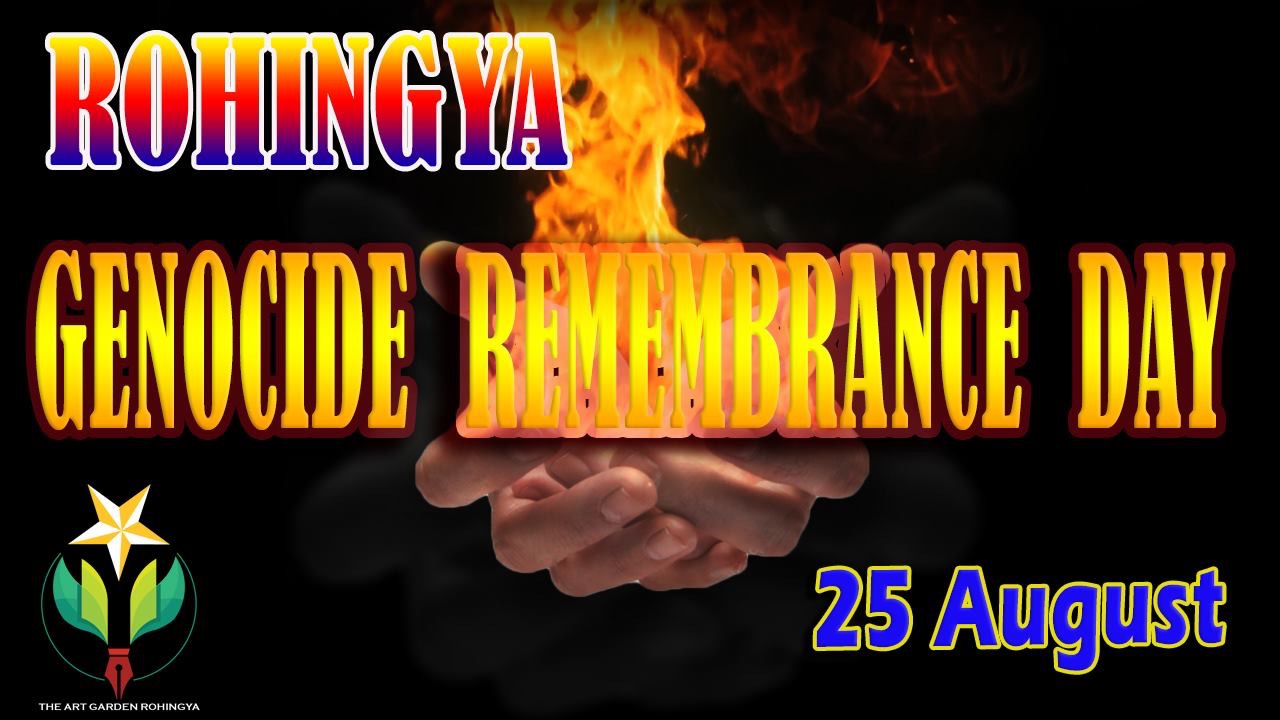
 Follow
Follow